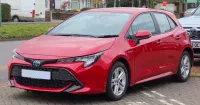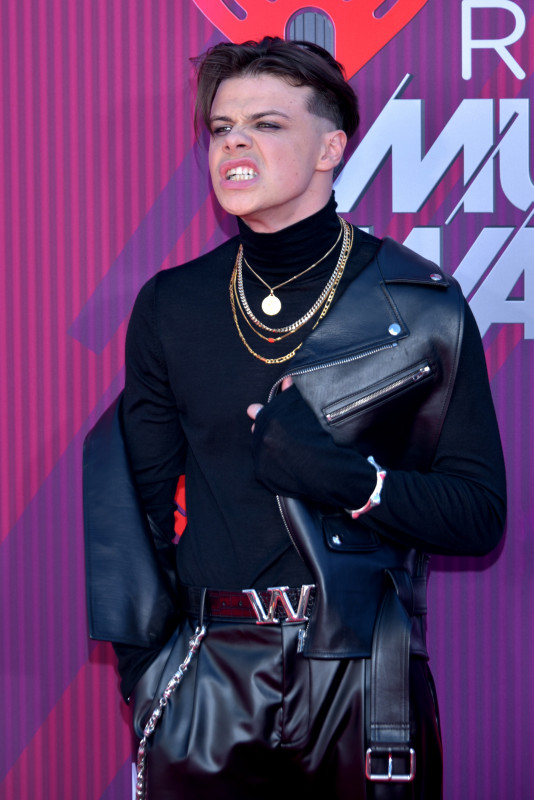Polestar, a Swedish electric vehicle manufacturer, operates as a subsidiary of Volvo Cars and has its headquarters in Torslanda, near Gothenburg, Sweden. Production facilities for Polestar vehicles are located in several countries, including China, the US, and South Korea. These facilities are owned by either Volvo Cars or its parent company, Geely Holding.
1996: Polestar's Longstanding Partnership with Volvo
Polestar's collaboration with Volvo dates back to 1996, initially involving racing Volvo cars and contributing to the development of race cars for Cyan Racing.
1996: Flash Engineering: The Genesis of Polestar
Polestar's roots can be traced back to 1996 when Flash Engineering, a Swedish motorsport team competing in the Scandinavian Touring Car Championship, was founded.
2005: Polestar Racing Emerges
Flash Engineering was sold and rebranded as Polestar Racing in 2005. This marked the beginning of Polestar's association with performance tuning and modification of Volvo cars.
2009: Polestar Performance Partnership
In 2009, Polestar solidified its partnership with Volvo, becoming the official partner for modifying existing Volvo models under the Polestar Performance brand.
2010: C30 Polestar Performance Concept Prototype
Polestar ventured into prototype cars in 2010 with the C30 Polestar Performance Concept Prototype. This high-performance concept boasted over 400 bhp (300 kW) and 510 N⋅m (380 lbf⋅ft) of torque.
June 2012: Volvo S60 Polestar Concept
June 2012 witnessed the introduction of the Volvo S60 Polestar Concept, a powerful successor to the C30 Polestar. This concept featured a modified T6 engine delivering 508 BHP, achieving 0-100 km/h (0-62 mph) in 3.9 seconds and a top speed exceeding 300 km/h (190 mph).
2013: Volvo's Concept Coupé Influences Polestar 1
Volvo's Concept Coupé, unveiled in 2013, served as a design inspiration for the Polestar 1, demonstrating the brand's commitment to sleek and stylish electric vehicles.
2014: Polestar in Australian V8 Supercars
In 2014, Polestar's expertise extended to the development of a V8-powered Volvo S60 for the Australian V8 Supercars series, showcasing their capabilities in high-performance motorsport.
July 2015: Volvo Acquires Polestar
In July 2015, Volvo Cars acquired the Polestar brand, marking a turning point in Polestar's journey. The racing team was renamed Cyan Racing but retained its close relationship with Volvo.
2016: Dahlgren's Involvement in V8 Supercars
As part of the V8 Supercars program, Robert Dahlgren was seconded to Australia in 2014. His involvement in the program concluded at the end of 2016.
October 2017: Polestar Embraces Electric Future
In a significant move in October 2017, Volvo Cars and Geely Holding declared Polestar as a standalone brand with a clear focus on electric vehicles.
2017: Joint Venture for Electric Future
The foundation for the current Polestar was laid in 2017 with the formation of a UK-based holding company jointly by Volvo Cars and Geely Holding Group, setting the stage for Polestar's focus on electric vehicles.
February 2019: Polestar 2 Unveiled
February 2019 witnessed the unveiling of Polestar's second electric car, the Polestar 2. It marked Polestar's entry into the electric fastback market.
July 2019: Citroën's Legal Challenge to Polestar's Logo
In July 2019, Citroën initiated legal action against Polestar, alleging that Polestar's logo, which also featured chevrons, bore too close a resemblance to Citroën and DS Automobiles' logos.
2019: Polestar 1 Production Begins
Production of the Polestar 1 commenced in 2019 at a dedicated Polestar Production Centre in Chengdu, China. This marked the beginning of Polestar's journey as an independent electric car manufacturer.
June 2020: Legal Ruling Favors Citroën
The French court ruled in favor of Citroën in June 2020, prohibiting the sale of Polestar vehicles in France due to the logo dispute.
December 2021: Polestar Sales Ban in France Upheld
The legal battle continued, and in December 2021, the sales ban on Polestar vehicles in France remained in effect.
2021: Polestar 1 Production Ends
After a successful run, the production of the Polestar 1 concluded in 2021, marking the end of an era for the pioneering electric coupé.
March 2022: Polestar O2 Roadster Concept
In March 2022, Polestar unveiled an exciting roadster concept, the Polestar O2, showcasing the brand's exploration of open-top electric mobility.
June 2022: Polestar Goes Public
A significant milestone for Polestar occurred in June 2022 when its shares began trading on the Nasdaq exchange under the symbol PSNY.
August 2022: Polestar 6 Roadster Announced
Building on the success of the O2 concept, Polestar announced the Polestar 6 roadster in August 2022. This production model is expected to launch in 2026.
August 2022: Polestar Partners with Candela
Expanding its technological reach, Polestar announced a partnership with Candela in August 2022. Polestar would supply batteries and charging technology for Candela's electric hydrofoil boats.
September 2022: Citroën and Polestar Reach Settlement
After a protracted legal dispute, Citroën and Polestar reached a settlement in September 2022, paving the way for Polestar's potential entry into the French market.
2022: Polestar 2 BST Edition 270 Released
A limited-edition high-performance variant of the Polestar 2, the BST edition 270, was released in 2022. With a limited production run of 270 units.
2023: New Headquarters for Polestar
In 2023, Polestar announced the construction of a new, state-of-the-art headquarters in Gothenburg, spanning an impressive 80,000 square meters (860,000 square feet).
2024: Polestar 2 Mid-Life Refresh
The Polestar 2 is slated for a significant mid-life refresh for the 2024 model year. Key updates include a transition to rear-wheel drive for the single-motor variant, performance enhancements, cosmetic changes, and the integration of the "SmartZone" front-end design.
2024: Volvo to Reduce Stake in Polestar
Volvo plans to reduce its stake in Polestar from 48.3% to approximately 18% by the third quarter of 2024, transferring its shares to Geely Holding.
2026: Polestar 6 Production Launch
Polestar has set a target of 2026 for the start of production for the highly anticipated Polestar 6 roadster.
Mentioned in this timeline
China officially the People's Republic of China PRC is an...
Australia officially the Commonwealth of Australia encompasses the Australian mainland...
France officially the French Republic is primarily located in Western...

A car also known as an automobile is a wheeled...

The Nasdaq Stock Market based in New York City is...

September is the ninth month of the year in the...
Trending
Brandon Miller is an American professional basketball player currently playing for the Charlotte Hornets in the NBA A consensus five-star...

2 months ago Yungblud teams with Aerosmith for Rolling Stone UK cover; concert and rock relationship.

7 months ago Harrison Ford and Gene Simmons to be honored by Operation Smile for charity.

Ray Lewis is a former American professional football linebacker renowned for his -year career with the Baltimore Ravens A standout...

9 months ago Caitlin Clark, Serena Williams at NFL Meeting; Flag Football for LA28.

2 months ago Laura Rutledge and Tim Tebow Pay Off a Lost Bet on SEC Nation.
Popular

Stranger Things created by the Duffer Brothers is a popular...

XXXTentacion born Jahseh Dwayne Ricardo Onfroy was a controversial yet...

Kelsey Grammer is an accomplished American actor producer and singer...

Marco Rubio is an American politician attorney and diplomat He...

Candace Owens is an American conservative political commentator and author...

Bernie Sanders is a prominent American politician currently serving as...